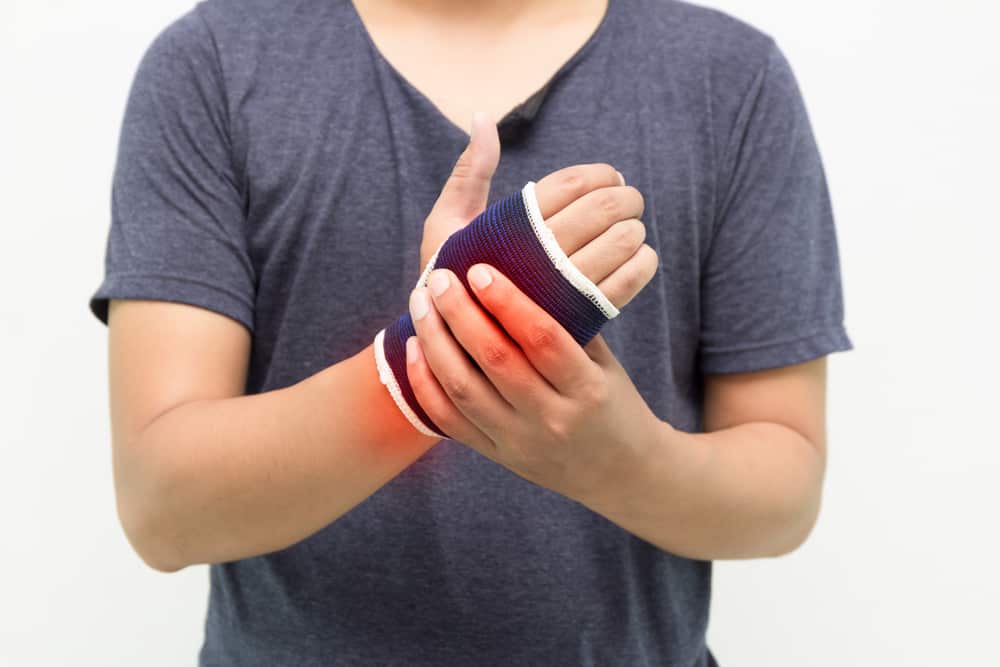You may not think often about your hands, but they are one of the most commonly used body parts. We use our hands for countless things every day, but it’s often only when they’re injured that we realize how critical they are. This also means hands are vulnerable to a number of injuries, as they are often involved in activities. You may use your hands to handle sharp objects, brace yourself for impact, or open and close doors. If you suffer a hand injury, before visiting a hand specialist in Atlanta, there are steps you can take to mitigate the initial symptoms like pain and swelling.
What Is Swelling?
Generally, swelling after an accident is your body’s immune response to a personal injury. As a part of this response, white blood cells, proteins, antibodies, and various other fluids are all sent to the damaged body part to aid with healing, leading to inflammation and swelling because of the excess volume. This fluid is designed to protect damaged tissues, and a small amount of swelling is unavoidable and can be good for healing. However, too much swelling can lead to further complications.
Excess swelling can be uncomfortable and limit your range of motion, which can also slow down healing as you are not able to regain strength through movement. Additionally, when inflammation is not treated, it can lead to more swelling that never goes down.
Swelling is not an injury in itself, but instead appears when another injury has occurred. This can be a simple injury like a cut, or something more serious like a broken bone or dislocation. If you notice swelling in your hand, it is important to seek care from a hand specialist in Atlanta to determine the underlying cause.
Steps to Reduce Swelling After an Injury
In the immediate aftermath of an injury, you can perform simple steps at home to reduce swelling until you are able to seek medical attention.
1. Rest
When you use an injured hand, it encourages blood flow to that hand, which leads to further swelling and potentially irritating the already damaged cells. When stress is placed on an injury, the body continues sending fluid to protect it, which can cause more swelling in addition to more damage. Even if you are not experiencing pain, giving the hand a rest for a few days allows the swelling to go down and the injury to begin healing.
2. Ice and Cold Therapy
Cold applied immediately after an injury can help manage the pain and reduce swelling because it restricts blood flow to the area and decelerates cellular metabolism. Most people can use a bag of ice or an ice pack, though ice baths, cold therapy systems, and cryotherapy can all help as well. The cold can be applied throughout the day for no more than 30 minutes at a time, which should help the swelling clear up quickly.
3. Compression
Another way to reduce blood flow to an injury is by applying pressure immediately to the affected hand. Pressure can be applied on a prolonged basis using static or elastic bandages, as long as they are not so constrictive that they cut off the circulation altogether. As swelling increases and decreases, the bandages will likely need to be adjusted to accommodate the new hand size.
4. Elevation
Keeping an injury above the level of the heart can encourage less blood flow, preventing it from pooling and causing more swelling. This is usually easy with a hand injury, as you can use pillows to prop the hand up above the heart or hold the hand when moving.
5. Medication
While medication is not a long term solution, NSAIDs like ibuprofen reduce inflammation while also alleviating pain. You should always consult a doctor before using any medication and pay close attention to dosage and interaction information. If NSAIDs are safe for you, they can offer relief until you are able to seek medical care.
Many of these solutions can be combined to create extra benefit. For example, placing an ice pack within a compression bandage and elevating the hand allows you to reduce swelling in multiple ways, especially if the swelling is severe or increasing.
Treating Hand Injuries
Even if you are able to completely eliminate swelling at home, it is important to visit a hand specialist in Atlanta as soon as possible after an injury. Sometimes, we wouldn’t know how long after an accident injuries can appear. The hand contains a large number of bones and tissues that can be easily damaged, leading to an inability to perform your usual daily activities. At AICA Orthopedics, our doctors can evaluate your hand for any injuries, obvious or hidden, and create treatment plans designed to help you regain use of your hand quickly and safely.


